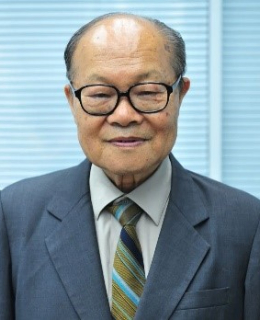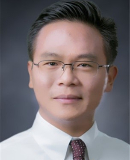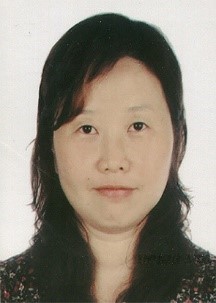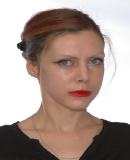

Days:00
Hours:00
Minutes:00
Seconds

secretary@pmsconf.org


Prof Lixing Zhou
Department of Engineering Mechanics, Tsinghua University, China
Speech title: LES Studies on Structures of Swirling Gas, Spray and Pulverized-Coal Flames
Abstract: The effects of droplets or particles on turbulent combustion and conversely the effect of combustion on turbulence, attract much attention from many investigators. In this paper, in order to understand the effects of droplets and particles on structures of turbulent swirling spray and pulverized-coal flames, studies on comparing structures of gas, spray and pulverized-coal flames were conducted by large-eddy simulation (LES) using Smagorinsky-Lilly and energy equation sub-grid-scale (SGS) stress models, second-order moment (SOM) and eddy-break-up (EBU) SGS combustion models. Statistical results were validated by corresponding experiments. Instantaneous results indicate that swirling gas, spray and pulverized-coal flames have no wrinkled-flame structures. It is found that droplets and particles enhance gas turbulence and turbulent combustion.
Biography: Prof. Zhou is a leading scientist in CFD modeling of multiphase flows of combustion in China. He got his Ph.D. degree from the Leningrad Polytechnic University, former USSR in 1961. He was once the Chairman of Multiphase Fluid Dynamics Division, the Chinese Society of Theoretical and Applied Mechanics, and was a member of the Board of Directors in the Chinese Section of the Combustion Institute. He also served in the Governing Board of the International Conference on Multiphase Flow. Currently, he continues to play an active role in many scientific committees of international symposiums on multiphase flow and combustion. Prof. Zhou’s research area is numerical simulation of multiphase turbulent flows and combustion. His main contribution lies in the theory of particle turbulence and a new “SOM” modeling theory of turbulence-chemistry interaction. He won the China National Awards of Natural Science in 2007, Science and Technology Progress Awards of First Degree by the Ministry of Education and the Ministry of Electricity of PRC in 1995, and China National Awards of Excellent Scientific Books of First Degree in 1992.

Prof Qiwei Zhan
College of Information Science and Electronic Engineering, Zhejiang University, China
Speech title: Multiscale & Multiphysics Advanced Computing
Abstract: The fusion of numerical algorithms and AI techniques has been forming a new research direction——scientific machine learning. The former enjoys its accuracy of an abstract mathematical model, while the latter is reputed for the real-time prediction capability. For complex systems, the discrepancies between simulation and observation are hard to be ignored; therefore, to address this intractable issue, advanced computing techniques have emerged, including multi-scale modeling, multi-physics simulation, and uncertainty quantification. On the other hand, AI for electromagnetics is limited to simple 2D scenarios yet, and the feasibility of solving real-world large-scale problems still needs exploration. Therefore, it is necessary to explore the next generation of artificial intelligence technologies, which go beyond simulation from the perspective of data utilization. This talk will provide an operator learning technique that combines the non-intrusive model reduction with the structure preserving technique. This serves as a bridge between machine learning and numerical simulation, offering favorable properties, such as sparse data learning, high generalization capability, interpretability, and scalability. The talk will also introduce the concept of scientific machine learning-empowered digital twins, and explores potential directions for the fusion of computational EM and AI.
Biography: Qiwei Zhan received the B.S. degree from the University of Science and Technology of China, Hefei, China, in 2013, the M.S. degree in civil and environmental engineering from Duke University, Durham, NC, USA, in 2016, and the Ph.D. degree in electrical and computer engineering from Duke University (U.S. News: No. 7 in the U.S.), in 2019. From June 2019 to August 2020, he was a Peter O'Donnell, Jr. Postdoctoral Fellow in Oden Institute for Computational Engineering and Sciences (CWUR: No. 1 in the World for CSE, with 8/47 full-time faculty as Academicians), at University of Texas, Austin. Since September 2020, he has been with the College of Information Science and Electronic Engineering at Zhejiang University as a Research Professor and Ph.D. Supervisor. His research interests include multiphysics modeling, computational mechanical waves, computational electromagnetics, uncertainty quantification, effective medium theory, inverse problems, biomedical imaging, and scientific machine learning.

Assoc Prof Fang Wang
School of Energy and Power Engineering, Beihang University, China
Speech title: Integrating IB Method and SOM in AECSC for Advanced Turbulent Combustor Simulations
Abstract: This study unveils AECSC, an advanced software tool developed for simulating turbulent combustion in gas turbine combustors, integrating a novel immersed boundary (IB) method with the Large Eddy Simulation-Transported Probability Density Function (LES-TPDF) model or the Second Order Moment (SOM) approach. Tailored to navigate the complexities of combustor geometries, AECSC leverages coefficient array transformations and local flow pattern reconstruction, ensuring accurate boundary condition integration. Validation across various test cases, including a gas turbine model combustor and an aero-engine combustor, demonstrates AECSC's superior accuracy in complex configurations, challenging traditional body-fitted mesh methods. By harmonizing the IB method with LES-TPDF or SOM, AECSC represents a significant advancement in gas turbine combustor simulation, offering a robust platform for high-fidelity analysis and design optimization in practical engineering applications. This paper discusses AECSC's development and application in two-phase turbulent combustion, emphasizing its effectiveness in real combustion chamber simulations within aero-engines.

Prof Nikolay M. Bogatov
Head of Physics and Informational Systems Department, Kuban State University, Russia
Research Interests: Semi-conducting structures; Gauge field theory; Nerve fiber; Impulse signal; Impulse response function; Magnetic resonance imaging; Thermometry; Spin-lattice relaxation time; Magnetic field; Nuclear magnetic resonance; Digital image analysis; Pseudocolor palette.
Academic achievements: Published 460 scientific papers and textbooks in the fields of physics, biophysics, information systems, including 23 official registration certificates for computer programs, 10 patents for inventions, 1 degree to the opening. Prepared by 6 candidates of science.


Prof Orchidea Maria Lecian
Sapienza University of Rome, Italy
Biography: Prof. Orchidea Maria Lecian graduated in Theoretical Physics at Sapienza University of Rome and ICRA- International Center for Relativistic Astrophysics in 2005 and completed her PhD in Physics- International Relativistic Astrophysics Phd at Sapienza University and ICRA. She was post-doctoral Fellow at IHES (Bures-sur-Yvette, France), AEI-MPI (Potsdam-Golm, Germany) and Sapienza University of Rome. She has taken part in intensive research prorammes at AEI-MPI (Potsdam-Golm, Germany) and The Fields Institute for Research in Mathematical Sciences (Toronto, Canada). She has been researcher for SAIA- NS'P (The National Scholarship Programme of the Slovak Republic- National Stipendium Program) as Research grantee and Erasmus Lecturerat Comenius University in Bratislava, Faculty of Mathematics, Physics and Informatics, Department of Theoretical Physics and Physics Education- KTFDF. She has been Assistant Professor at Sapienza University of Rome and is Professor at Sapienza University of Rome. She is now taking part in the Programme Education in Russian Federation for Foreign Nationals of the Ministry of Science and Higher Education of the Russian Federation at Kursk State Univeristy, Division of Algebra, Geometry and Didactics of Mathematics Theory (Kursk, Russia). She has contributed in national conferences and international conferences. She is member of several Research Consortia.